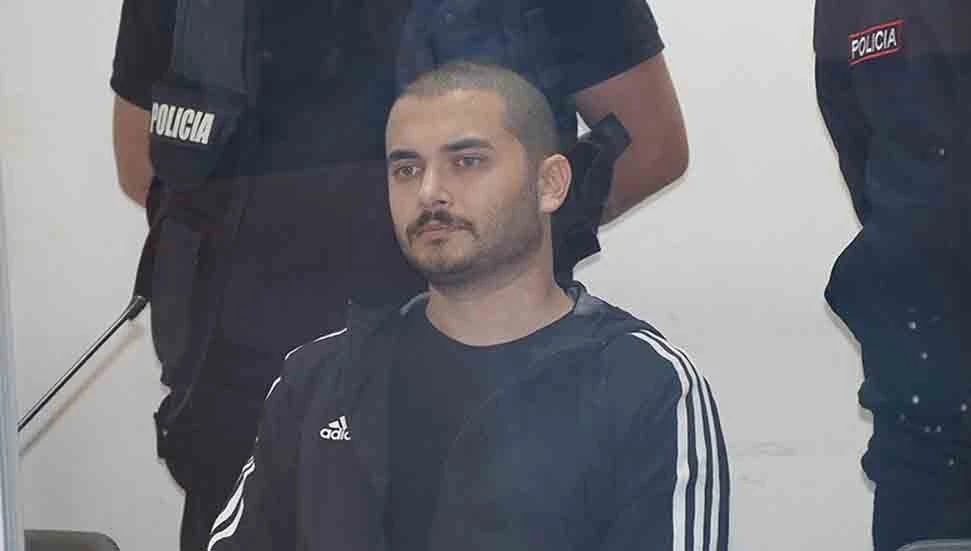
News
Thodex founder Faruk Fatih Özer at an extradition hearing in Albania
The founder of one of Turkey’s largest cryptocurrency exchanges who absconded with the funds of some 390,000 clients from across the country stashed €13 million of those funds in Malta, according to charges in an indictment against Thodex exchange founder Faruk Fatih Özer.
An Albanian court ruled this week that Özer can be extradited to face justice in Turkey, where prosecutors are requesting an incredibly lengthy prison sentence for him and his 20 fellow defendants.
In an indictment by the Anatolian Chief Public Prosecutor’s Office, Özer is accused of defrauding hundreds of thousands of Thodex clients. The indictment follows an investigation conducted by MASAK – Turkey’s Financial Crimes Investigation Board, the country’s financial intelligence unit which is attached to the Ministry of Finance and Treasury.
The MASAK report, reported by several media outlets in Turkey, found that Özer transferred client’s crypto assets worth a total of €13.2 million (253,714,909 Turkish lira) from three separate accounts to wallets at a crypto asset service provider in Malta. Those crypto wallets, according to MASAK’s investigations, belong to Faruk Fatih Özer and co-defendants Cem Uzunoğlu and Zuhal Özer.
Özer had been on the run for over a year but he will now be extradited to Turkey after being arrested in Albania in August on the strength of an Interpol Red Notice issued for his arrest on 23 April 2021.
He will face charges of aggravated fraud and forming a criminal organisation, Turkish state media aa.com reported on Friday.
The 27-year-old Özer’s Thodex exchange had inexplicably gone dark last year and left thousands of users suddenly unable to withdraw their funds. Özer then fled to Albania.
An Albanian court on Thursday ordered his extradition to Turkey.
In all, over the past year Turkish authorities arrested 68 suspects, including Özer’s brothers, as part of their investigation into the Thodex scam,.
The 268-page indictment singled out 21 defendants for charges of “establishing and managing an organisation for the purpose of committing a crime” and “fraud through using information systems, banks or credit institutions”, among other charges.
An incredible prison sentence of 40,564 years is being sought for each of the 21 defendants.
In total, they are accused of defrauding users out of some €2 billion through an exit scam perpetrated at a period when bitcoin and the general crypto market were having a bull run in Turkey.
The Istanbul-based exchange had embarked upon aggressive advertising campaigns featuring famous Turkish models to lure investors in, at first promising them luxury cars in return for their business.

Thodex founder Faruk Fatih Özer in better times
But last year Thodex users said they were suddenly unable to withdraw hundreds of millions of euros from the cryptocurrency exchange. A number of users soon got themselves legal representation and filed a fraud complaint against the exchange and its executives.
The exchange made an announcement at the time to report a temporary shutdown due to “abnormal fluctuation in company accounts.”
Two days after absconding from Turkey last year, Özer denounced what he said were “baseless allegations” against him in a message posted on the company’s Twitter account. He said he had gone abroad to meet investors. “I will return to Türkiye in a few days and cooperate with the judicial authorities so that the truth comes out,” but he never returned.
The Özer case is the second in a month in which Turkish nationals have used Malta to hide away and launder their ill-gotten gains in cryptocurrencies.
The Shift reported earlier this month that a Turkish organised crime gang had been laundering the proceeds of illegal gambling through a Malta cryptocurrency exchange.
Some $30 million in cryptocurrency in Malta that belonged to the murdered Turkish crime boss, Halil Falyalı, who was assassinated last February in North Cyprus, has been seized by Turkish authorities as part of an investigation into an illegal gambling ring.
The Turkish authorities said that some $30 million were seized from cryptocurrency accounts in Malta belonging to Falyalı and his wife. The accounts were being sent the proceeds of gambling, which is illegal in Turkey, through the Papara free money transfer app, after which they were being converted into untraceable cryptocurrency.
This news is republished from another source. You can check the original article here



